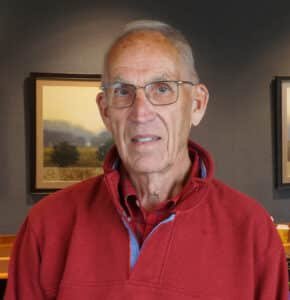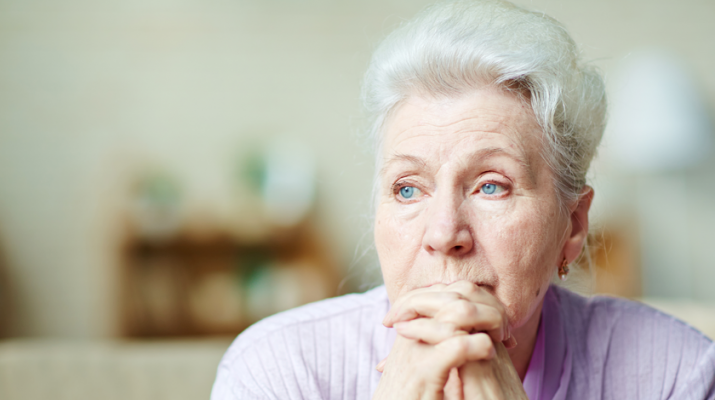The MAID Act, if signed into law by Gov. Kathy Hochul, would amend the public health law to allow terminally ill adults to obtain and use prescription medications to peacefully end their lives.
By Mike Costanza

Dennis Hewett remembers what it was like to watch cancer take his brother Garry and his mother Ruth Leone.
“I watched them pass away in a form that was not dignified in any means,” the 81-year-old Fairport resident said.
The experience led Hewett to support the Medical Aid in Dying (MAID) Act, which passed 35-27 in the New York State Senate on June 9. The largely party-line vote in the Senate sent the bill to the desk of Gov. Kathy Hochul.
The MAID Act would amend the public health law to allow terminally ill adults to obtain and use prescription medications to peacefully end their lives.
Individuals would have to have irreversible and incurable illnesses or diseases, have six months or less to live, and be found by two doctors to be mentally capable to make an informed decision to obtain and use the drugs.
Senator Brad Hoylman-Sigal, who co-sponsored the bill in the upper house, called upon Hochul to sign it.
“MAID is a proven strategy to expand end-of-life options and reduce human suffering for patients with a terminal illness that is already in effect in 11 states and the District of Columbia, in addition to being supported by nearly 70% of New Yorkers,” read a statement from Hoylman-Sigal’s office. “I am looking forward to the Governor signing this bill into law so that New York can become the 12th state to finally give New Yorkers access to this compassionate and dignified end-of-life care option.”

A growing number of organizations have come out in support of the MAID Act, including the New York State Academy of Family Physicians, the New York State Nurses Association, the New York State Bar Association, the Medical Society of the State of New York and Compassion & Choices, a nonprofit that for over 40 years has led or supported campaigns to allow individuals to make their own end-of-life decisions.
Among the opponents of the legislation are The NYS Catholic Conference and the Center for Disability Rights, a Rochester-based nonprofit that advocates for and helps serve the needs of people with disabilities. In addition, the Code of Ethics of the powerful American Medical Association states that “physician-assisted suicide is fundamentally incompatible with the physician’s role as healer, would be difficult or impossible to control, and would pose serious societal risks.”
Supporters of the act have been careful to point out that it does not define a qualified individual’s ending of his or her life as a “suicide,” which is illegal under the penal law.
“This very specifically is not defined as a “suicide” to ensure that protections are in place so that life insurance would still pay out,” said Assembly Member Jen Lunsford, who co-sponsored the bill in the lower house. “If you committed suicide, your life insurance would not pay out.”
Lunsford has personal motives for supporting the legislation. After her father Richard Lundsford underwent an operation he developed sepsis, a condition in which the body’s infection-fighting processes turn upon it. She watched as he spent seven weeks in an intensive care unit, slowly fading away until he died in February of 2010.
“It was very challenging for me to watch him, a very proud man, have to go through a lot of the indignities that come in the end of life,” she said.
Though her father’s condition would not have met the MAID Act’s requirements, since it wasn’t considered terminal, Lundsford would like to give New York state residents the end-of-life options that the act would allow.
“I’ve had story-after-story-after-story from people who have had to watch their loved ones endure the same things for even longer,” she said.
A survey of Lunsford’s constituents found that over 75% of respondents favored passage of the MAID Act.
Hewett experienced challenges when his mother died about 20 years ago, and when his brother died in 2023.
“They both went into hospice and lingered in hospice, and I watched them going from a sickly person to a deathly ill person, and got to the point where they could no longer communicate, could no longer swallow, had difficulty breathing,” he said.
Both of his relatives would have been able to use the MAID Act to make end-of life decisions, Hewett said. He would like that option as well.
“I have some health issues,” he said. “I don’t expect to be here in five years, and I want to be able to have this choice.”
Versions of the MAID Act have been introduced in the Legislature since 2015, but none of them have made it to the governor’s desk until now. As of this writing, Hochul had not said whether she intended to sign the bill into law. The Legislature was scheduled to end its 2025 session on June 12.

